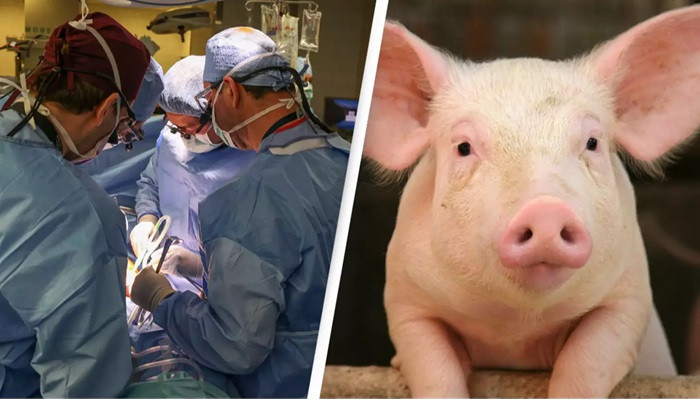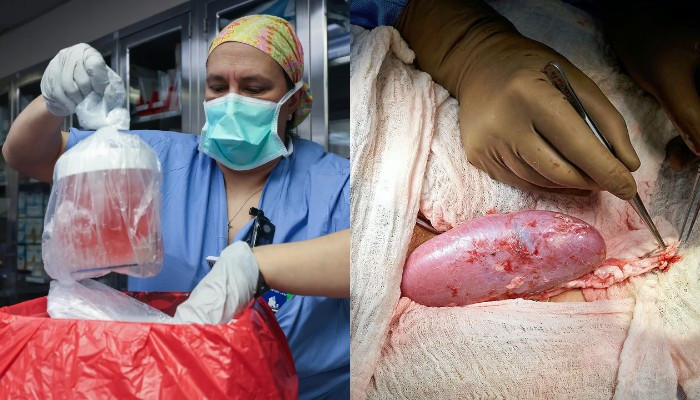Pig kidney transplanted into living person for first time
 Doctors at Massachusetts General Hospital say they’ve successfully completed the world’s first transplant of a genetically modified kidney from a pig into a living human. The patient is Rick Slayman, a 62-year-old man, from Weymouth, Massachusetts, who was diagnosed with end-stage kidney disease. In a written statement from the patient provided by the hospital, Slayman said he had been a patient of the hospital’s transplant program for 11 years. This is not Slayman’s first kidney transplant. He received a previous kidney from a human in 2018 after living with diabetes and high blood pressure for many years. That kidney began to show signs of failure five years later, and he resumed dialysis in 2023. “I saw it not only as a way to help me, but a way to provide hope for the thousands of people who need a transplant to survive,” Slayman said in the written statement. Dr. Tatsuo Kawai, who is director of the Legorreta Center for Clinical Transplant Tolerance and the surgeon who performed the operation, said the organ was exactly the same size as a human kidney. “It was truly the most beautiful kidney I have ever seen,” Kawai said in a news briefing. In the news conference on Thursday, doctors said Slayman is recovering well and expected to be discharged from the hospital soon. This is the third such xenotransplant of a pig organ into a living human. The first two transplants were hearts transplanted into living patients that had run out of other transplant options. The organs were transplanted under special rules that permit compassionate use of experimental therapies for patients in especially dire situations. Both patients died weeks after receiving their organs. The organ came from a pig that was genetically modified by a company eGenesis to make them more compatible with humans. “This successful procedure heralds a new era in medicine in which we have the potential to eliminate organ supply as a barrier to transplantation and realize our vision that no patient dies waiting for an organ,” Dr. Michael Curtis, CEO of eGenesis, said in new release. “We are humbled by the courage and generosity of this patient, who is a true pioneer, enabling this major break-through in science and transplant medicine.” The need for organs far outstrips the number that are available. Every day 17 people die in the U.S. waiting for an organ. Kidneys are the organ in shortest supply. According to the Organ Procurement and Transplantation Network, roughly 27,000 kidneys were transplanted in 2023, but nearly 89,000 people were on the waitlist for those organs. Experts say xenotransplantation, or transplants from animals to humans, could be a critical part of solving the shortage of donor organs.  |

Woman who suffered flesh-eating disease after insect bite receives a face transplant
82604.02.2026, 00:07
India rushes to contain deadly Nipah virus outbreak after five cases confirmed
90324.01.2026, 20:43
Thousands of NYC nurses strike for better staffing and pay (video)
85012.01.2026, 23:38
Nestle issues global recall of some baby formula products over toxin fears
121107.01.2026, 20:43
Air pollution India's biggest health crisis since Covid, warn doctors
132826.12.2025, 17:41
"What Is This Mushroom?"... Japanese Man Trusts AI, Ends Up in Emergency Room
140927.11.2025, 22:53
